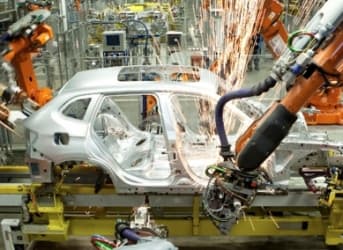No doubt smarting from criticism about its lack of success in picking winners in alternative energy vehicles, the Department of Energy has given initial approval for a $269 million loan to a proven winner – Alcoa’s high-strength aluminum to make vehicles lighter and more fuel efficient.
The loan in fact covers the costs for new factory capacity at Alcoa’s Tennessee plant, which the company announced nearly two years ago and which is due for completion in mid-2015. Related: What’s Really Behind The U.S Crude Oil Build
It was the first loan in DOE’s Advanced Technology Vehicles Manufacturing program in four years after several misfires brought the program into ill repute, and the first since Energy Secretary Ernest Moniz announced a year ago that component technology would also be eligible for loans. The program still has more than $16 billion in allocated funding available.
But the new loan came under immediate fire for being superfluous since Alcoa was proceeding with the plant with or without DOE assistance.
Paul Chessler, associate fellow at the National Legal and Policy Center, noted that Alcoa had proceeded with its plans in Tennessee as well as additional capacity in an Iowa plant because of high demand from automakers for the lightweight metal. Related: U.S. Seizes On Venezuelan Weakness To Regain Caribbean Energy Foothold
“So the project is happening without need for the DOE loan,” Chessler said. “It’s pretty audacious that DOE and Secretary Moniz would try to extract credit for a project that was already two years into development and construction.”
Perhaps not coincidentally, the announcement of the loan in late March came the day after Sen. Lisa Murkowski, D-Alaska, took the program to task in an Appropriations Committee hearing.
“This is the 48th consecutive month that the ATVM direct loan program has been unable or unwilling to finalize a new direct loan for an automaker or component supplier,” Murkowski, who separately chairs the Senate Energy and Natural Resources Committee, said at the hearing on the DOE’s proposed budget. “It really begs the question in terms of why we would continue to have this program on the books, why we would continue to have taxpayers’ support there.”
Moniz acknowledged there had been some problems in “dealing with applicants” but promised there would some “outputs” soon. “We’re getting a lot of interest,” he said. “We have an interesting proposal stream.”
The DOE in any case is on the record as being a fan of “lightweighting” cars.
“A 10% reduction in vehicle weight can result in a 6%-8% fuel economy improvement,” the department says on the website for its Vehicle Technologies Office. “Replacing cast iron and traditional steel components with lightweight materials such as high-strength steel, magnesium (Mg) alloys, aluminum (Al) alloys, carbon fiber, and polymer composites can directly reduce the weight of a vehicle's body and chassis by up to 50% and therefore reduce a vehicle's fuel consumption.” Related: Resource Dependence Could Prove Fatal For Canadian Economy
The department estimates that using lightweight components together with high-efficiency engines in one quarter of the U.S. fleet could save more than 5 billion gallons of fuel annually by 2030.
Ford has moved ahead with use of aluminum alloys in its F-150 pickup truck, its highest-selling model, and is marketing the 2015 model as 700 pounds lighter and the “future of tough.”
By Darrell Delamaide for Oilprice.com
More Top Reads From Oilprice.com:
- How Much Longer Can OPEC Hold Out?
- Huge 100 Billion Barrel Oil Discovery Near London
- Shell Betting Its Future On LNG


















